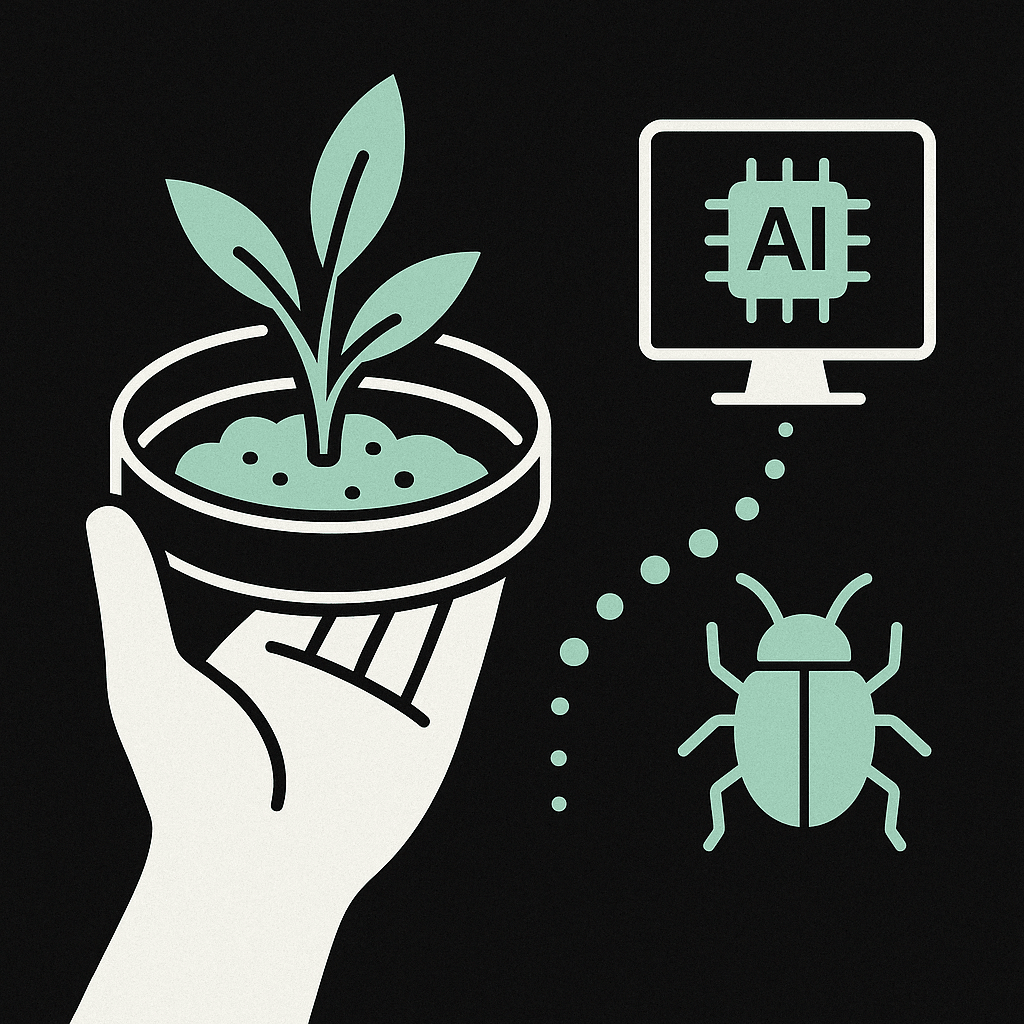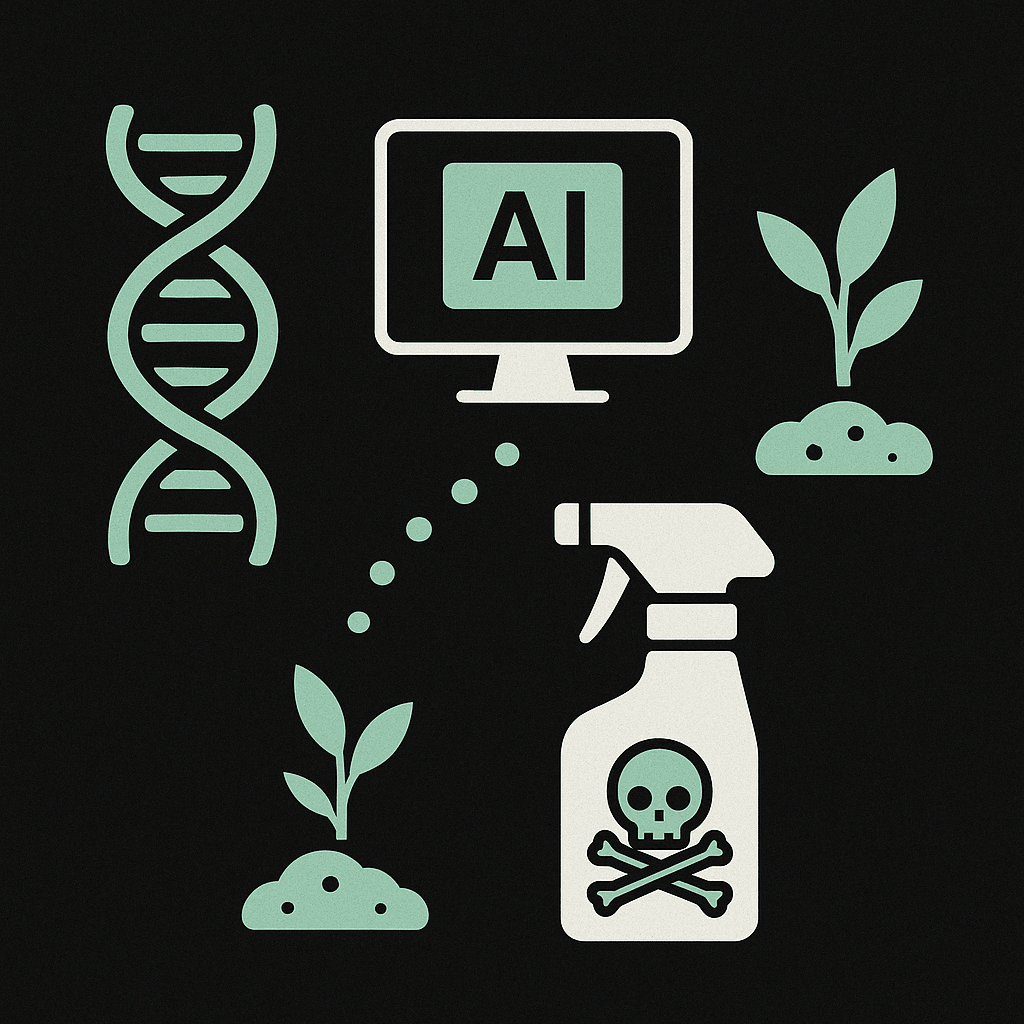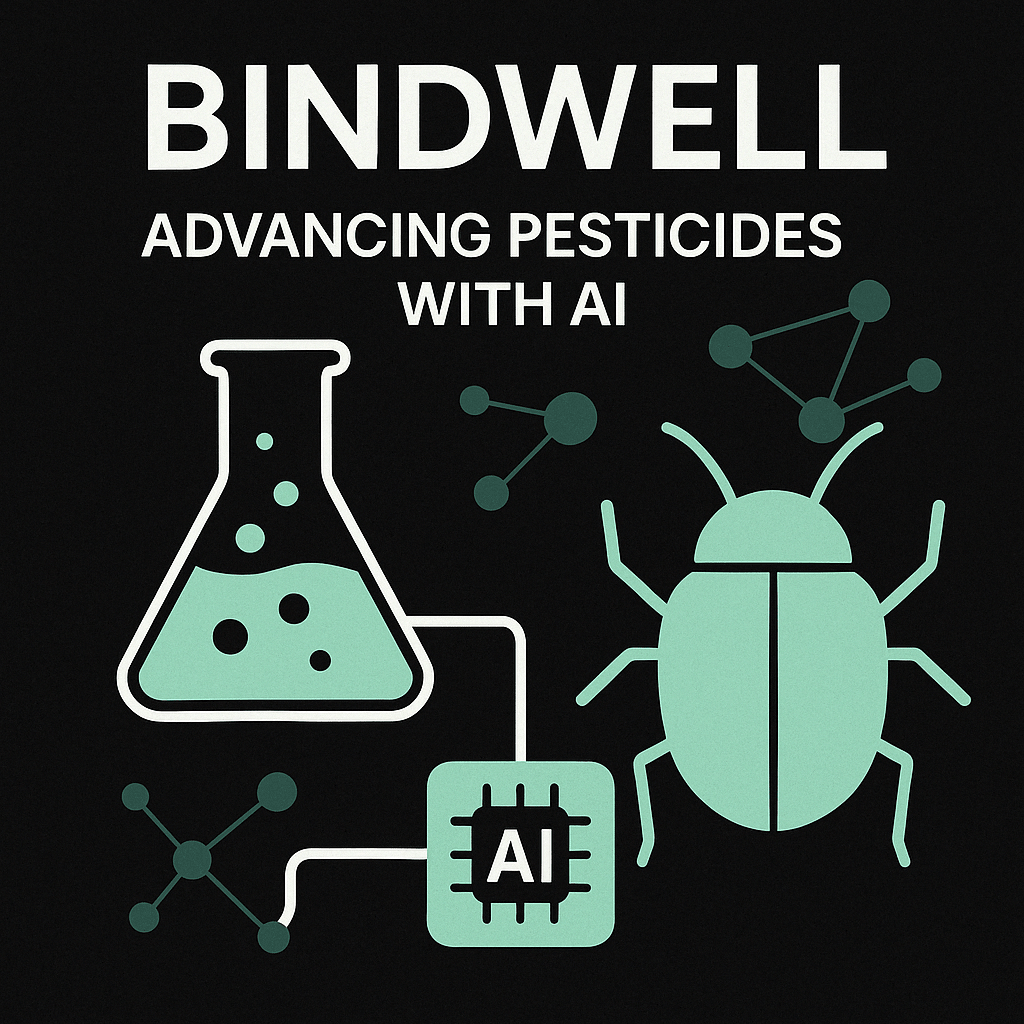Bindwell: Building the Next Generation of Pesticides
In an era where AI is transforming nearly every field, from medicine to marketing, agriculture remains one of the most underserved sectors—particularly when it comes to pesticide innovation. Since 2000, pesticide usage has doubled, even as global farmland has shrunk. Despite this intensified chemical warfare against pests, an alarming 20–40% of crops are still lost annually to infestations.
The culprit? Outdated pesticides and a lack of true innovation. Pests evolve resistance rapidly, turning formerly effective chemicals into obsolete solutions. Instead of crafting novel compounds, agrochemical companies have leaned heavily on reworking existing molecules—introducing fewer than 40 new active ingredients since the 2010s. Meanwhile, farmers are stuck in a loop: spray more, spend more, gain less.
While drug discovery has embraced machine learning and deep learning at scale, pesticide development has lagged behind. And yet, the underlying biochemistry between drug and pesticide discovery is remarkably similar. It's time for a revolution—and that’s where Bindwell comes in.
What Is Bindwell and What Problem Are They Solving?
Bindwell is a San Francisco-based startup founded in 2024 by a team of ambitious, dropout engineers on a mission to redefine how the world creates pesticides. With a compact team of three—Tyler Rose, Navvye Anand, and Max—they’ve created a vertically integrated AI platform designed specifically to develop better, safer, and more targeted pesticides.
Their fundamental belief is simple: pesticide discovery is a search problem, and AI can massively accelerate that search. Rather than waiting weeks for results from traditional lab assays, Bindwell’s models deliver answers in seconds. This speed transforms what used to be an expensive, slow, and speculative process into a precise and rapid workflow.
By embracing AI-first thinking from the ground up, Bindwell isn't just improving pesticide R&D—they're making it viable for the first time in decades.
How Does Bindwell Use AI to Create Safer Pesticides?
At the heart of Bindwell’s innovation are three custom-built AI models, each targeting a key component of the pesticide development pipeline:
Foldwell:
Bindwell’s flagship model and self-described AlphaFold killer. Foldwell is a protein structure prediction engine that runs 4x faster than AlphaFold 3, giving researchers a near-instant view of target proteins in pests. Understanding protein structures is the first step in designing effective pesticide compounds—and Foldwell does it in record time.
PLAPT:
An open-source protein-ligand interaction model that’s blazingly fast. PLAPT can evaluate every synthesized compound ever made—millions of them—in just six hours. This model identifies which molecules are most likely to bind with target proteins, narrowing the field to only the most promising candidates.
APPT:
For screening biopesticides, which use proteins rather than chemicals to kill pests, APPT evaluates protein-protein interactions. It's currently the best-in-class, outperforming other models by 1.7x on Affinity Benchmark V5.5.
Together, these models allow Bindwell to simulate and evaluate millions of biological scenarios quickly and precisely. And instead of focusing on broad-spectrum chemicals that kill everything in sight (including pollinators and beneficial microbes), Bindwell targets species-specific proteins, ensuring that only the pest is affected.

Who Are the Minds Behind Bindwell?
The team behind Bindwell isn’t your typical biotech roster. They’re young, technical, and driven by a shared personal mission.
- Tyler Rose started his career at Wolfram Research, diving deep into computational science.
- Navvye Anand attended Caltech and has a background rooted in both AI and a childhood spent around Indian farmlands.
- Max, the latest addition to the team, is a college dropout from Reed with a track record in open source and a wide range of interests—from robotics to philosophy.
The three met through academic research programs and bonded over a shared desire to solve high-impact problems. With firsthand exposure to farming struggles in both India and China, Tyler and Navvye have a deeply personal understanding of the stakes. This isn't just science for the sake of science—it's a mission.
Why Is Bindwell's Work So Important Right Now?
With global food security under increasing threat from climate change, soil degradation, and evolving pest resistance, the need for sustainable crop protection has never been more urgent.
Traditional pesticides are losing effectiveness and harming ecosystems. Regulatory bodies are banning more harmful compounds each year, but new solutions aren’t arriving fast enough to fill the gap. This is a crisis waiting to explode.
Bindwell offers a rare double-win: ecologically responsible pesticides that are also more effective. Their AI models don’t just help identify new chemicals—they help build pesticides that are:
- Highly targeted (killing pests while leaving everything else alone)
- Faster to discover (shaving years off the traditional discovery timeline)
- Scalable (with open-source components that democratize access)
In short, Bindwell is poised to do for agriculture what DeepMind did for protein folding—usher in a new era of high-speed, high-precision bioengineering.
What’s Next for Bindwell?
Currently, the team is focusing on mapping druggable proteins in some of the most stubborn pest species—organisms that the agrochemical industry has historically struggled with. By applying their models to these niche but devastating targets, Bindwell hopes to develop compounds with unprecedented specificity and efficiency.
They’re also expanding their AI stack, continuing to refine model performance and open-sourcing portions of their tech to foster wider adoption and community-driven improvements.
As they push forward, one thing remains clear: Bindwell isn’t just building tools—they’re building a new standard for pesticide discovery.
How Is Bindwell Shaping the Future of Agriculture?
If Bindwell succeeds in its mission, the future of agriculture could look radically different. Picture a world where:
- Crops are protected by custom-engineered molecules that only affect a single insect species.
- Farmers use less pesticide than ever before—and see better results.
- The environmental impact of agriculture is reduced, preserving biodiversity and pollinators.
- Developing countries have open access to world-class pesticide discovery tools, enabling local solutions for local problems.
This vision isn’t decades away. With their models already operational and outperforming industry benchmarks, Bindwell is turning what was once the slowest-moving segment of agriculture into one of the fastest.

Final Thoughts: Can AI Save the Agrochemical Industry?
In a sector long dismissed as too niche or too outdated to innovate, Bindwell stands out as a bold outlier. It’s not just their teenage-founder story, their AI chops, or their high-speed models—it’s their fundamental reframing of the pesticide problem that makes them special.
They’ve identified that the future of pesticides isn’t in chemistry alone—it’s in computation. And they’ve built the tools to prove it.
As the world grapples with food insecurity and environmental collapse, Bindwell’s AI-driven approach offers a timely and potentially transformative solution. In their own words, they’re not here to optimize around the edges—they’re here to build the future of pest control from scratch.
And with Foldwell, PLAPT, and APPT leading the way, they just might do it.

